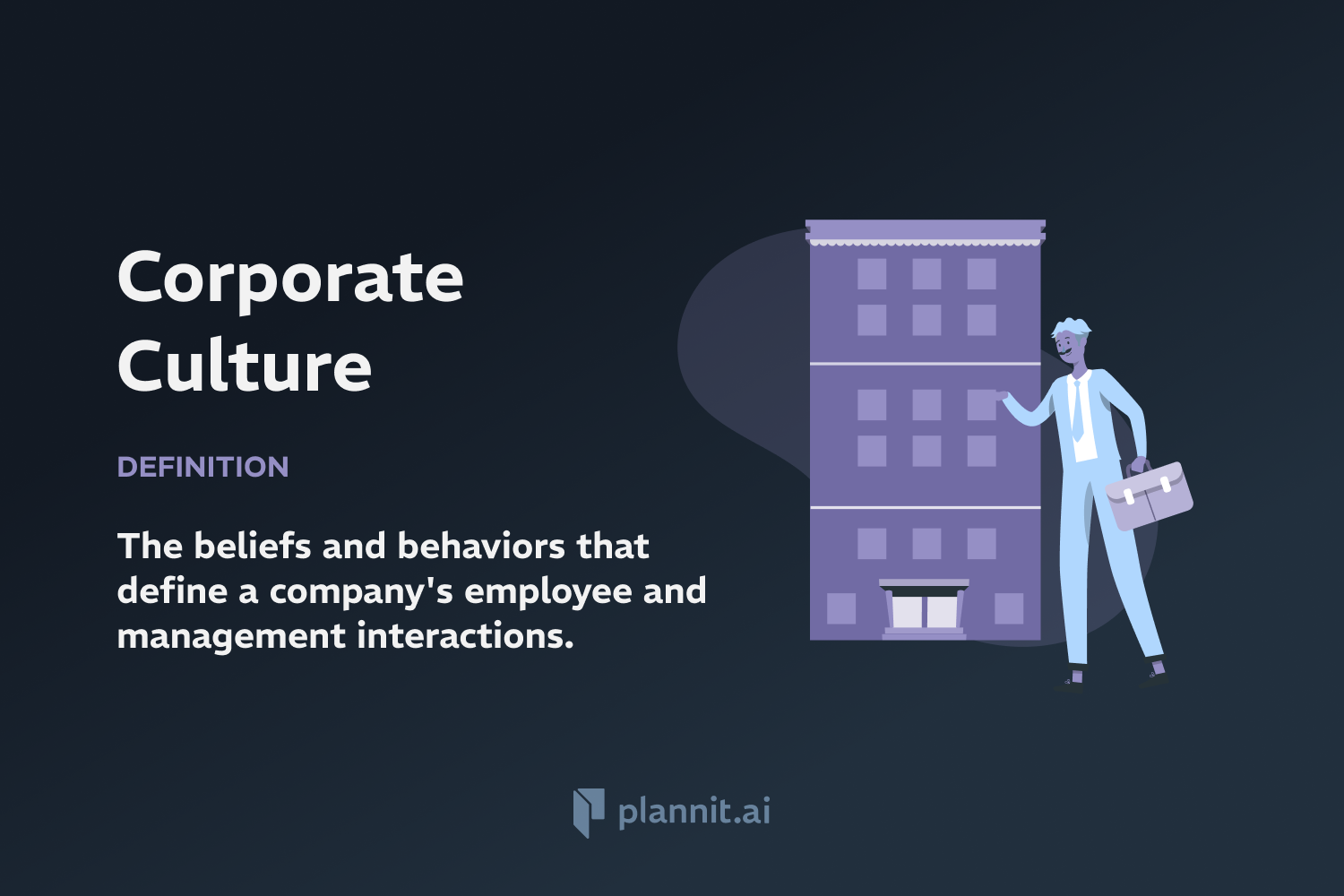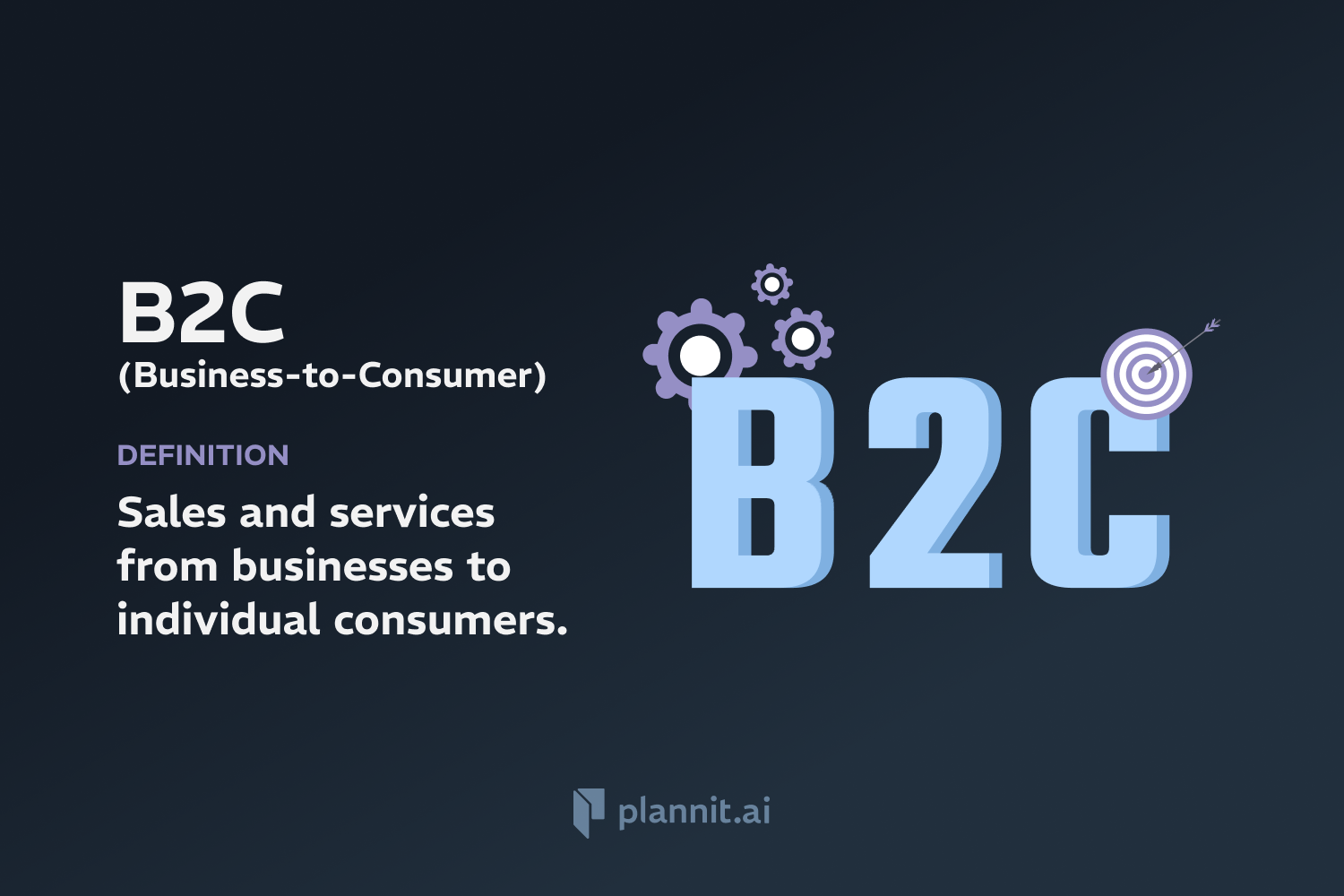Need Help With Your Business Plan?
Answer tailored questions and get a detailed business plan in minutes.
Corporate Culture: Definition & In-Depth Explanation

Corporate culture refers to the shared values, beliefs, and behaviors that determine how a company's employees and management interact and handle outside business transactions. Often implied rather than explicitly defined, corporate culture develops organically over time from the cumulative traits of the people the company hires and the management style it cultivates.
Purpose:
The purpose of corporate culture is to foster a strong sense of identity and community among employees, which can enhance engagement and loyalty. A positive corporate culture boosts productivity, fosters better employee morale, and helps attract and retain talented individuals. It also impacts public perception and can influence business relationships.
Example:
A tech startup may promote a culture of innovation and risk-taking, encouraging employees to develop new ideas and offering rewards for creativity. This can be reflected in flexible work arrangements, a flat organizational structure, and open, collaborative workspaces that foster interaction and the exchange of ideas.
Related Terms:
Organizational Behavior: The study of how people interact within groups in a work environment and how this behavior affects the performance of the company.
Mission Statement: A statement of the organization's purpose, defining the primary objectives its management seeks to achieve.
Employee Engagement: The level of an employee's commitment and connection to an organization, which can significantly impact their work performance and satisfaction.
Workplace Ethics: The moral principles that guide the behavior and decisions of employees and the organization in the workplace.
FAQs:
How is corporate culture created and maintained?
Corporate culture is created and maintained through leadership and communication. It is influenced by the company’s mission, objectives, expectations set by management, and the way managers and other employees interact daily.
Can corporate culture change?
Yes, corporate culture can evolve as a company grows, new employees join, markets change, or new leadership alters the company's direction. Intentional efforts such as restructuring, new policies, and leadership changes can significantly influence cultural shifts.
Why is corporate culture important for business success?
A strong corporate culture aligns the entire company towards the same goals, drives engagement, attracts talent, and often correlates with increased productivity and economic performance.
What are some indicators of a negative corporate culture?
Indicators can include high employee turnover, frequent conflicts or complaints, lack of cooperation, and poor work performance. Negative cultures are often characterized by a lack of trust, fear of taking risks, and poor communication.
How do companies assess their corporate culture?
Companies assess their culture through employee feedback, surveys, interviews, and by observing workplace interactions and behaviors. External audits and reviews can also provide an objective view of a company's culture.
Get funding with a business plan that will impress investors.
Starting a New Business?



